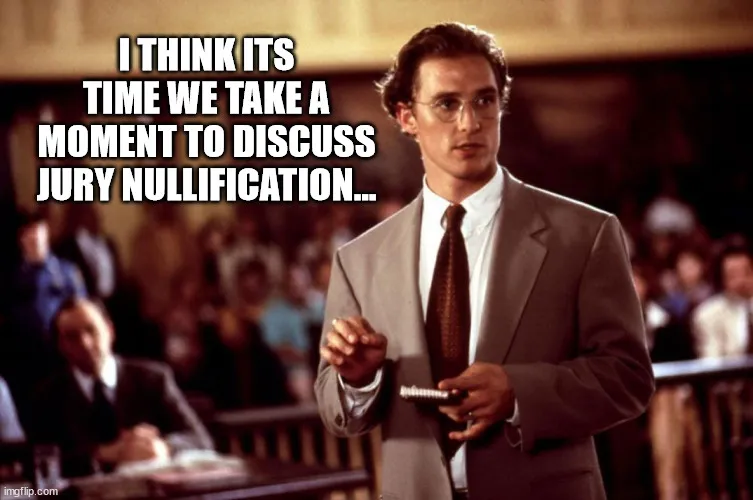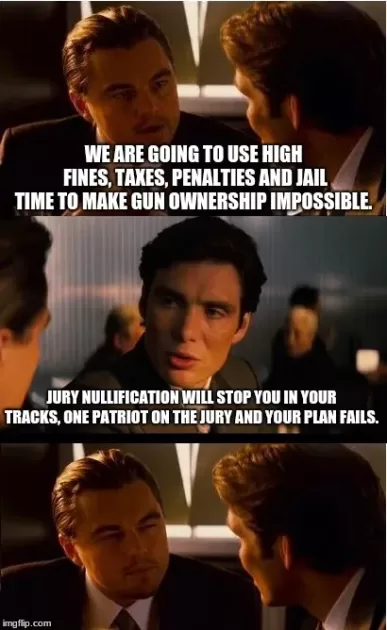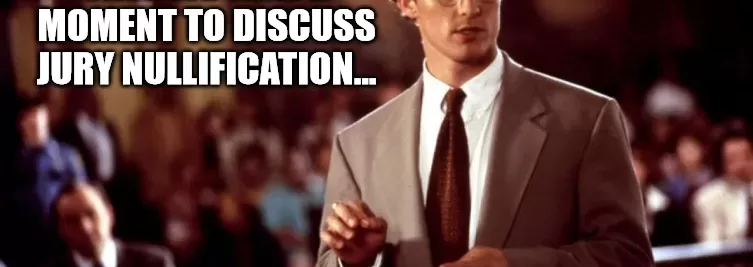Jury nullification happens when jurors decide to return a “Not Guilty” verdict even though they believe the defendant broke the law. They might do this because they think the law is unfair or shouldn’t be applied in the specific case. Once a jury decides “Not Guilty,” that decision can’t be overturned, which effectively nullifies the law in that instance.
A less extreme version occurs when a jury can’t reach a unanimous decision, leading to a hung jury and possibly a mistrial. In some cases, jurors may refuse to convict based on their personal values or societal trends, like rejecting outdated laws (e.g., during Prohibition or against marijuana possession), which can make enforcing those laws difficult over time.
This can also extend to capital cases, where jurors choose life imprisonment instead of the death penalty, even if the legal criteria for a death sentence are met.
Sometimes, jury nullification is called conscientious acquittal or a juror veto.

Jury nullification is legal because it falls within the jury’s power to deliver a “Not Guilty” verdict based on their conscience, even if the evidence shows the defendant has broken the law. The U.S. legal system grants jurors the authority to judge both the facts of the case and, implicitly, the fairness or applicability of the law itself. Once a “Not Guilty” verdict is delivered, it cannot be overturned, due to the double jeopardy clause in the Constitution (Fifth Amendment), protecting individuals from being tried twice for the same offense.

Though jury nullification isn’t widely advertised or formally encouraged(I wonder why… lol), it has occurred frequently throughout American legal history. High-profile examples include its use to reject enforcement of unjust laws, such as the Fugitive Slave Laws in the 19th century or during Prohibition, when jurors refused to convict people for alcohol-related offenses. More recently, it has appeared in cases involving marijuana possession, where jurors may disagree with the severity of the punishment relative to the crime.
While jurors have the legal right to nullify, courts rarely inform them of this option(…it’s censored on purpose), as it can undermine the rule of law in some situations. Nonetheless, nullification happens when jurors feel that applying the law would be unjust in a particular case, or they disagree with the law itself.

